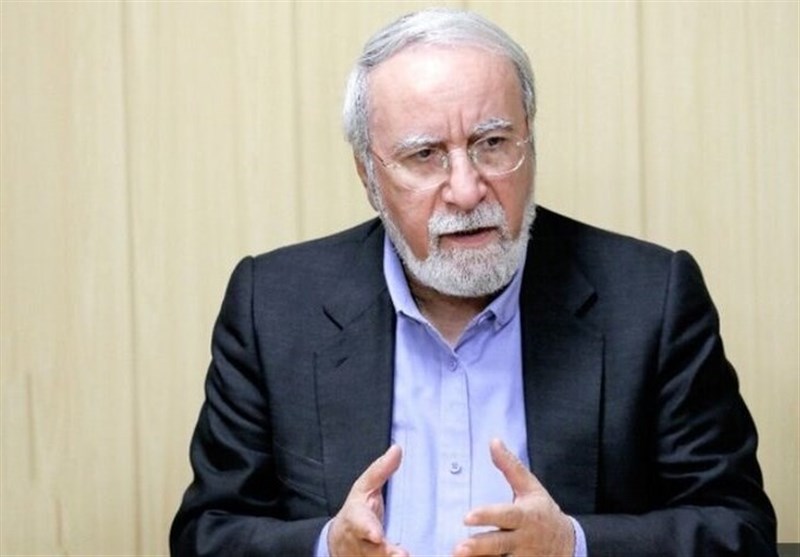AhlulBayt News Agency: As a matter of fact, it should be said that a murderous regime that has openly and intentionally committed atrocities against the people of Gaza (while this crime has been proven) should be summoned to court and politically and media-wise condemned in the eyes of the world. This will indeed be a great victory for Africa and Palestine.
Following 15 days since the initial session of the International Court of Justice addressing South Africa's allegation against the Zionist regime for genocide in Gaza, the tribunal ultimately issued its provisional judgment on Friday, finding the Zionist regime guilty of war crimes.
Although South Africa had petitioned for a Hague court ruling to prevent warfare in Gaza in its complaint, the court directed the Israeli government to take measures to prevent and penalize direct instigations to genocide in the Gaza conflict.
The verdict specified: "The Israeli government... must utilize all available means to thwart the commission of acts outlined in Article II of the Genocide Convention."
The Hague court's pronouncement has instigated extensive discussions regarding its impact on the Gaza conflict and the legal repercussions for the Zionist regime. To further debate on this matter, Al-Waght News has arranged a discussion with "Sabah Zangeneh" a political and international law expert.
Sabah Zangeneh: The concept of genocide has been previously addressed, encompassing both legal and criminal aspects. From a legal standpoint, a comparable scenario unfolded in South Africa prior to its political transformation, where the apartheid regime oppressed the non-white population. Numerous nations voiced objections and lodged complaints, resulting in the condemnation of the apartheid regime in South Africa. However, judgments from the International Court of Justice (ICJ) lack executive or enforceable elements. Conversely, in criminal courts, individuals responsible for crimes and atrocities are prosecuted, facing various forms of legal consequences.
The recent ruling from the International Court of Justice carries substantial credibility and political implications that surpass the expected scope of such a judgment. Some might anticipate the ICJ to promptly denounce the Zionist regime and proceed with the apprehension of its leaders. However, the current situation entails the declaration of the Zionist regime's commission of crimes against humanity, particularly in its actions leading to the loss of human lives in Gaza, a condemnation of these acts. The regime has been instructed to direct its military forces to adhere to the provisions of the Genocide Convention and refrain from targeting non-combatants. The Zionist regime asserts that it has instructed its military not to engage in attacks against the people of Gaza.
Q: The intention is for the court's findings to be presented to the Security Council for examination. What will be the outcome of the International Court of Justice ruling following the Security Council session?
Sabah Zangeneh: When considering the Security Council, a significant obstacle will arise if the United States and the United Kingdom, as it is evident, will not agree with the verdict. There have been numerous instances of resolutions, with the United States consistently impeding their adoption against the Zionist regime. Should the condemnation of this regime be brought to the Security Council this time, it will face resistance from the United States and the United Kingdom. However, this transfer to the Security Council won't happen swiftly unless South Africa and other nations opt to refer the case.
Presently, a thorough examination and investigation of both South Africa's allegations concerning the genocide case and the Zionist regime's defense are required for several months. Hence, we anticipate a timeline of a few months for these reviews.
In essence, it is imperative to acknowledge that a regime responsible for openly and intentionally committing massacres against the people of Gaza, with proven culpability, should be held accountable in court and condemned politically and in the media globally. Such actions would undoubtedly represent a significant victory for Africa and Palestine.
Q: Can the Worldwide Support for South Africa's Complaint Impact the Security Council? How Could Nations Prepare to Counter US Vetoes?
Sabah Zangeneh: Several options remain viable. Numerous international lawyers have joined the effort, signifying a breakdown in the barrier of fear and hesitation regarding action against the Zionist regime. Both the International Court of Justice and criminal proceedings can delve into various issues. ICJ judgments have clarified that the court has solely addressed the genocide issue, central to South Africa's complaint. Other matters await request for consideration. International lawyers bear the responsibility of urging the trial of the Zionist regime for diverse transgressions, including blocking food entry into Gaza, contaminating Gaza's water supply, and Israel's unlawful detention of Palestinians, among other violations. Hence, upon request by lawyers or governments, the leaders of the Zionist regime can be summoned and prosecuted, mirroring the process for Serbian officials. Even if the United States opposes, and a Security Council vote fails, the matter can be escalated to the United Nations General Assembly. The General Assembly has, on occasion, acted more decisively than the Security Council, overcoming opposition from one of its permanent members.
Q: Does the verdict from The Hague Court imply repercussions for the political and military officials of this regime regarding their involvement in genocide?
Sabah Zangeneh: At
present, there is no indication of this in the court's verdict.
Nonetheless, it might set the stage for the censure and summoning of the
Zionist regime's leaders.
/129

